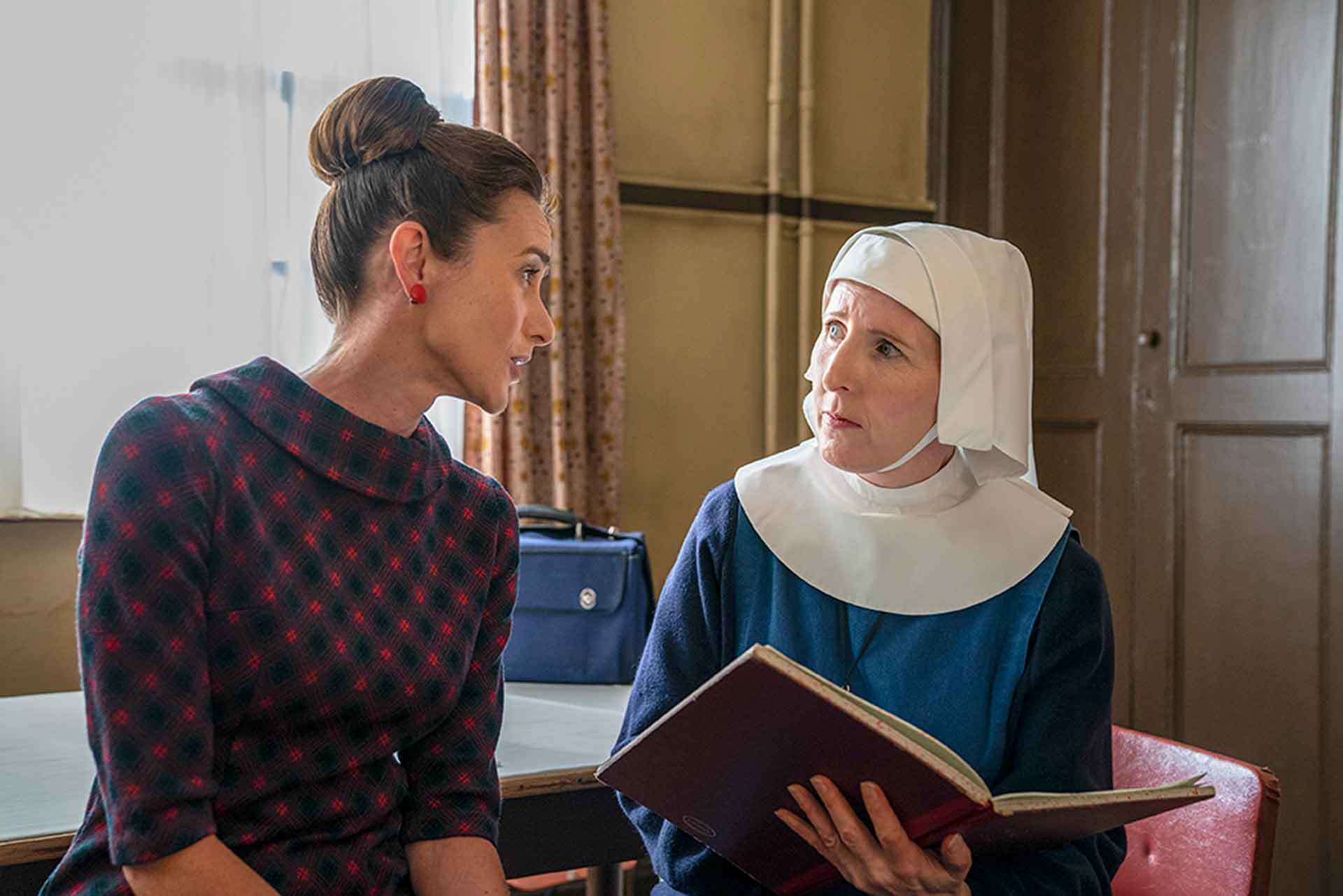
Much of this season’s 2nd episode focuses on the dependence on and disruptions in caregiving. Tina Atkins has little experience with being cared for, continues her job as prostitute and decides to relinquish her motherhood. She understands the importance of a more caring home for her children. The Bulmer family negotiates childcare, parent care and personal goals as they cope with a family member’s new limitations and disease diagnosis. Sergeant Woolf will go to his sister’s home for recovery care after his heart attack. Seeking, negotiating and giving care is fundamental. Consider that the ancient past may provide insight into the ways and whys of caregiving today and into the future.
Archaeology is now finding evidence of caregiving in the excavated remains of individuals who lived 4,000 years ago. Scientists are finding that one can learn a lot about a culture by looking at the evidence of how they cared for the injured, ill and disabled members of their community. The emerging subspecialty of bio-archaeology exists through the premise that evidence of the provision and receipt of caregiving reflect very fundamental aspects of a culture. I wonder what fundamental aspects of our current culture will be revealed by our journey through this coronavirus pandemic?
Our current reality is a dramatic demonstration on the theme of fundamental caregiving as pandemic conditions reign over nearly every earthbound human. Whole systems of caretaking have been interrupted and altered during the restrictions imposed to fight the spread of COVID-19. Our very definition of caretaking is turned upside down as, for most, our absence seems to be the most caring thing to do. I am unable to see my nonagenarian parents or my grandchildren as we carry out our community responsibilities of social isolation. Like many young families, my daughter and her husband are learning what it takes to simultaneously care for their children as they juggle their jobs from home. And they are some of the lucky ones. Like the Bulmers of 1965, many families in 2020 will struggle with finances. As measures to control the virus shut down businesses, incomes dwindle or disappear. Another school of thought suggests that relaxing social isolation measures to preserve these businesses and protect the economy is a better long-term care strategy. These are two very different perspectives about aspects of caregiving. Within our culture it is difficult to separate caring for personal safety from protecting financial security. The two are inseparably intertwined.
As I am no longer in active practice, I am not witnessing first-hand the havoc viral safety protocols are having on the families needing childbirth services. But I can tell you that my midwife colleagues, on the front lines of this battle, are most certainly seeing casualties. As direct victims of the disease are counted and mourned, the long-term emotional and financial damages will be incalculable. Collateral damage within both the corporeal and fiscal realms is inevitable.
Visitor restrictions are enacted in hospitals to contain the virus and we are already hearing reports of women giving birth without support from doulas or family members. Some institutions are considering the need to separate newborns from their mothers for two weeks. The sick and dying are unable to receive the support of family and friends as the overwhelmed health care systems wrestle with this invisible beast which lurks undetected until springing forward without boundaries of specific incubation periods or symptoms, which range widely from nearly none to weeks and total respiratory collapse.
There has been and will continue to be much debate about how this crisis is being handled by national governments, by local authorities and by individual citizens. As a retired health care provider, I feel frustratingly helpless as I watch my heroic colleagues working so hard to care for so many. To think of their need to ration life saving equipment seems surreal in our industrialized world.
Like Sister Julienne at the end of the episode, I fight a sense of failure. What could I have done differently to inspire more generosity, compassion and common sense into our culture? As a dear friend of mine and I have often said to each other, “Why can’t more people just think like us.” For now, I will embrace the wisdom that Sister Monica Joan hands out to her discouraged friend. I will set aside my ego and accept the world as it is. The future still holds hope and opportunity to shape the culture into one that will recognize the fundamental significance and all-encompassing scope of caregiving and caregivers. It is hope; after all, that lays at the heart of the Call the Midwife drama. Take care.
Get Another Take: Recommended Call the Midwife Recaps
From Thirteen.org | The British Tele Dish
From WTTW Chicago | The Playlist Blog
From NPT Nashville | The Vanderbilt University School of Nursing Recap
From WETA Washington | The Tele Visions Blog
From WGBH Boston | Watch Drama After Dark or Read the weekly recap